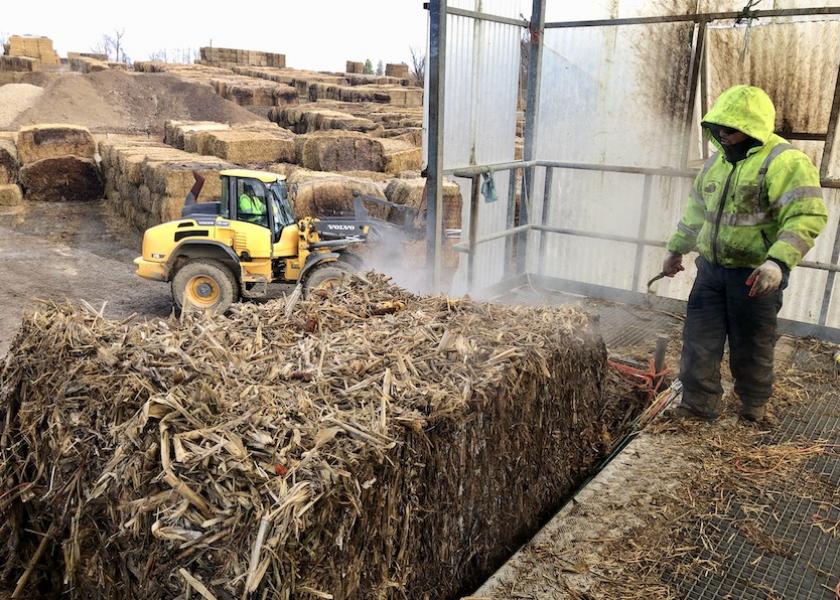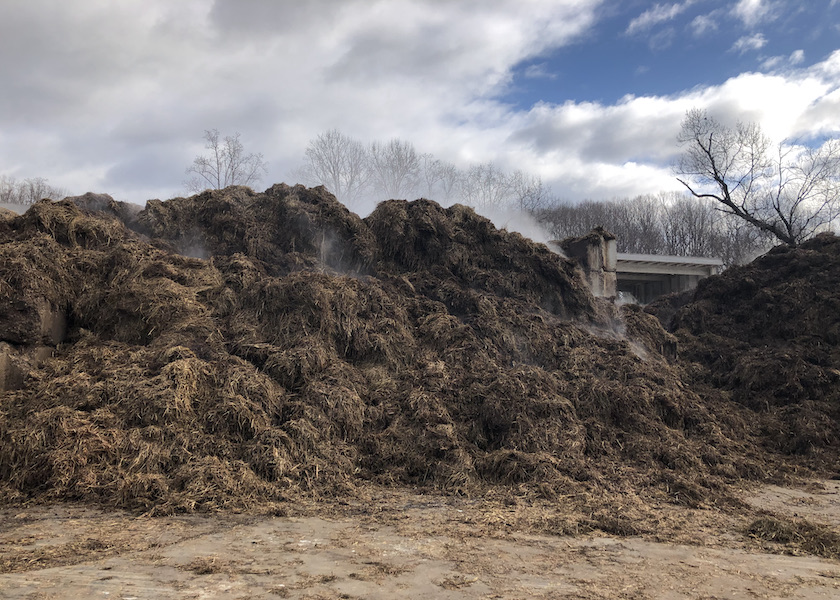Meet the far-out yet earthy mushroom, man

If fresh produce had archetypes, the mushroom would be the hippie.
Mushrooms are mellow, preserve the environment more than many crops and might provide a psychedelic experience if you’re not careful.
“Mushrooms are recyclers by nature. In fact, their growing environment is made even better by using natural byproducts to provide nutrients vital to their healthy growing process,” said Stephanie Myles, marketing manager of Highline Mushrooms, Leamington, Ontario.
“And when it’s time to be picked, mushrooms leave behind their own nitrogen-rich, natural byproduct, which is then pasteurized and shared with other farms or community gardens as an organic soil amendment, perfect for gardening and landscaping.”
Companies are trying to promote this attribute more as it becomes a higher priority in consumer decision-making.
“They’re the original sustainable product. It’s really exciting to have a conversation with a consumer and tell them we take raw material that’s an offshoot of something else and make fresh, nutritious food from it,” said Bruce Knobeloch, vice president of marketing and product development for Monterey Mushrooms Inc., Watsonville, Calif.
“Sustainability is kind of what we do. The majority of what we sell in retail is in packaging that’s 100% recycled and 100% recyclable.”
Sonya Beltran of First Generation Farms, Toughkenamon, Pa., loves that her mushrooms come from the waste of other farmers, such as hay and chicken manure. Those ingredients and others are part of a step-by-step composting process that forms the spores of mushrooms.
“I just feel good that it’s a more recycled process for produce,” said Beltran, director of operations. “And then our waste is used by others as fertilizer to grow other produce.”

Grown indoors year-round, mushrooms are one of the most sustainably produced agricultural products in the nation, said Eric Davis, who handles media relations for The Mushroom Council.
The council commissioned a research project to quantify how sustainable mushrooms are.
The study found that to produce a pound of mushrooms, it requires only 1.8 gallons of water, 1 kilowatt hour of electricity and generates 0.7 pounds of carbon dioxide equivalence.
A producer can grow as much as 1 million pounds of mushrooms annually on just one acre, he said.
“So, small footprint and not many resources used to grow it,” Davis said. “That was benchmark data, so we’re working to be even better than that.”
Phillips Mushroom Farms, Kennett Square, Pa., is working with some innovative partners to better use mushroom byproducts, like stems and pieces, that were previously composted, to create value-added products for consumer use, said Sean Steller, director of business development.
“While slightly increasing total harvesting and processing costs, this endeavor reduces waste while improving overall efficiency of raw materials,” he said.
Almost all the growing rooms of South Mill Champs, Kennett Square, are heated with clean and efficient natural gas and are equipped with energy-efficient cooling units, said Jessica Weil, brand communications manager.
South Mill Champs recycles most of its waste streams, such as mushroom roots, cardboard, paper, waste oils and wastewater.
Where possible, the company reuses wastewater in its processes, including millions of gallons each year to make up the growing medium, reducing the effect on groundwater levels.
And South Mill Champs’ integrated pest management program entails a targeted approach to pest control, and organic growing methods are used whenever possible.
“While sustainable initiatives can be expensive to execute, they can help save money once implemented. We are continuously assessing how we can address human health and wellbeing, climate, and farming constraints,” Weil said.







